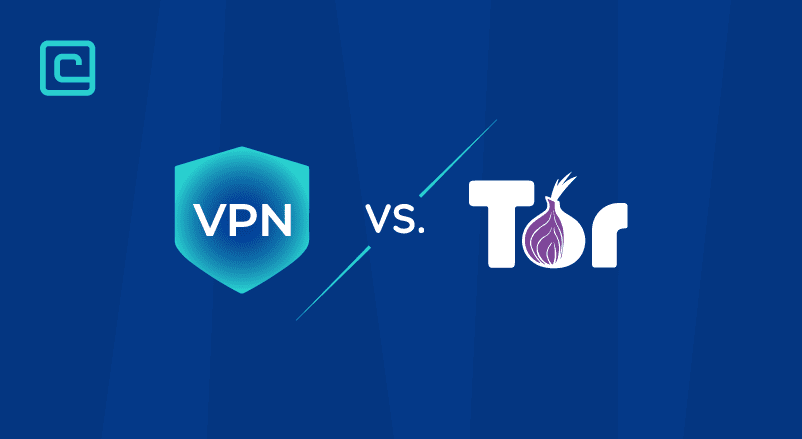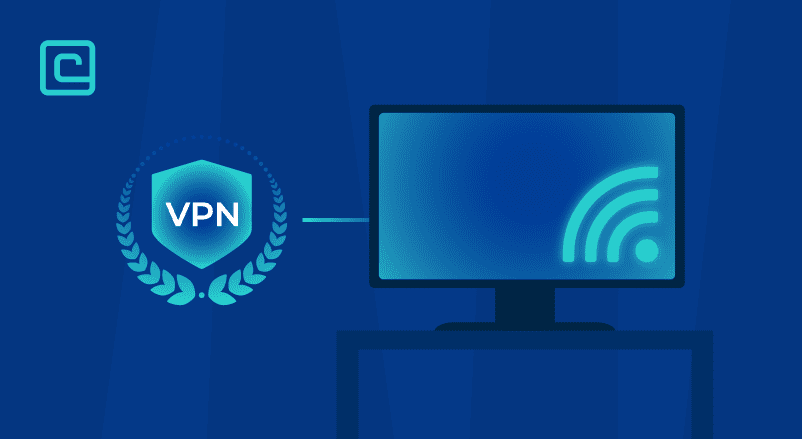VPN vs. Tor: Which One Is the Better Choice for You?

Key Points
- The key difference between Tor and VPNs is how they provide online privacy and security.
- Tor is open source and transparent, while VPNs are proprietary and less transparent.
- You can use a VPN with Tor to provide an additional layer of privacy and security. This can help to encrypt the traffic between the user and the VPN server before it enters the Tor network.
NordVPN is the best choice to use with Tor Browser.
The Tor vs. VPN debate is a tough one. Since the underlying tech is similar, it’s essential to consider their differences carefully. But how exactly do Tor and VPN vary?
The main difference between a VPN and Tor is how they hide your traffic. While a VPN uses a proprietary server to mask your IP address, Tor uses a decentralized relay network (called the onion router). Tor is free, independent, and open-source, whereas a VPN is a commercial software.
Considering this, you should ideally choose the one that fits your needs and budget. Of course, there are a lot of moving parts in this comparison. And that is what this short guide is about. Let’s settle the Tor versus VPN debate once and for all.
Test Your VPN Knowledge – Take A Quiz!
What is Tor?
Tor is a free and open-source software founded in 2002 and designed to help browse the web anonymously. Officially known as the Tor Project, it utilizes the onion routing technology to encrypt and conceal your traffic. Tor is short for The Onion Router.
Tor relies on a global network of relays (or nodes) managed by volunteers spread across the globe. When you use this tool, Tor software encrypts your traffic through at least three Tor nodes. It goes through a guard node, a middle node, and an exit node.
This decentralized network is called onion routing because of its multi-layered infrastructure. The guard node can see your real IP address. However, it can’t read the encrypted data. The middle server peels another layer. Lastly, by the time your connection data reaches the exit node, this Tor node can’t identify the sender.
Is Tor a VPN?
No, Tor is not a VPN, but it works like one and has similar operations and applications. Because Tor encrypts your connection through several layers, many online users mistakenly consider it a free VPN.

Then What About Tor Browser?
Tor Browser is the project’s flagship product. Tor users can use the Tor browser to surf the web privately. Your Internet connection is automatically routed through the Tor network, thus hiding your IP address and web traffic.
Tor Browser was launched in 2008 and has been synonymous with Tor since then. Today, when we talk about Tor, we primarily mean the Tor browser. It’s a direct competitor to mainstream browsers like Google Chrome, Safari, Opera, and Firefox.
What is a VPN?
A VPN or virtual private network is software that encrypts your traffic and routes it through a random remote server. This action is called tunneling, which hides your traffic from interceptors such as Internet Service Providers or the government.
In other words, VPN software creates a private network through this intermediary server. Communicating through an encrypted tunnel helps you isolate your online activities and avoid interception.
If a VPN creates your connection through one server, it is commonly known as a single-hop VPN. Some VPNs, like NordVPN and Surfshark, also offer multi-hop features. This is when a VPN routes your connection and hides your IP address behind multiple servers.
While a VPN does not provide 100% anonymity, it does switch your IP address. It replaces it with the IP address of the VPN server located in the country you connected to. This helps protect your identity online and lets you bypass geo-blocks.
VPN software uses tunneling protocols and encryption standards to give protection. While many of these protocols and standards are open-source, VPN apps are generally built and offered by private companies. Because of this, a VPN is a centralized service, unlike the Tor browser.
Difference Between Tor and VPNs
The key difference between the Tor browser and a VPN lies in the tunneling and encryption operations. While Tor uses a decentralized relay network to encrypt and hide your traffic, a VPN provider uses its proprietary software and servers to do so.
Moreover, Tor is a free and open-source browser. VPN providers will cost you money but will encrypt your communication across applications. However, the underlying theory behind the Tor browser and VPNs remains the same. Both depend on bit-based encryption and server-hopping to ensure forward secrecy (anonymous communication).
However, a VPN provider is still a for-profit company and has to follow government guidelines. Subscribing to a VPN provider involves a money trail and some providers may also engage in data logging.
Tor vs. VPN Comparison Points for Individual Users
Now that you know the major differences between Tor and virtual private networks, let’s look at their differentiating factors. These will help you decide which one to choose.
- Privacy – Tor’s robust relay network provides excellent privacy protection to individual users like you and me. However, its open-source infrastructure makes it vulnerable to hacking. In comparison, a paid VPN gives you better protection and accountability.
- Safety – Both Tor and VPNs offer an almost similar type of anonymity and online safety. However, some VPNs like NordVPN use military-grade encryption that will be crucial for applications like torrenting. Moreover, VPNs offer near-100% anonymity and excellent features like a kill switch and port forwarding.
- Speed – VPN speed with reputable services like NordVPN and ExpressVPN is noticeably better than the Tor browser’s connection speed. Also, there is no way to optimize your internet speed when using Tor.
- Cost – Tor is a free browser you can download directly from the site. In comparison, most free VPN service providers are untrustworthy, so you have to pay for a premium provider.
- Utility – Both Tor and VPNs can be used for anonymous browsing and censorship bypassing. Tor connections also enable you access to the dark web and *.onion sites, which is not possible using a general-purpose VPN.
- Variety – There are dozens of VPN providers to choose from, whereas Tor is in itself an independent project. There is only one Tor network.
Similarities Between Tor and VPNs
There’s no denying that Tor software and VPN services differ in many regards. However, in some cases, VPNs and Tor are similar to each other:
- Web Freedom – Tor and VPNs facilitate the free web equally. You can use either if your main goal is to access geo-blocked websites. However, dedicated VPN servers have an edge when it comes to unblocking streaming sites.
- Malware Prevention – You can use Tor Browser or a VPN to stay away from spyware, hacking, phishing, and malware. In this sense, both tools offer enhanced online security.
VPN or Tor: How Do They Compete?
To make this Tor vs. VPN comparison more visual and easier to understand, here’s how they compare directly across some key aspects. The major differences between a VPN and Tor are as follows:
| The Tor Project | Virtual Private Networks |
|---|---|
| Uses an open-source relay network | Uses proprietary server network |
| Open-source and free | Private and paid |
| Single, independent provider | Choose from multiple providers |
| No manual server selection | Manual server/location |
| Vulnerable to attacks | Less vulnerable to attacks |
| Not accountable to users | Accountable to paying users |
| Allows dark web access | Only some VPNs allow dark web access |
| Only browser-based protection | All applications go through the encrypted connection |
| No data logging | Some VPNs may log your data |
| Not connected to the government | Answerable to the government |
Benefits of Using Tor Browser
- Independent Project – On one hand, it is free and an easy way to communicate privately over the web. On the other, its open-source infrastructure and historical breaches make it a less reliable system.
- Great For Privacy – Tor is the most recommended privacy browser in the world. It doesn’t collect your data, unlike most mainstream browsers nowadays.
- Provides Access to the Dark Web – the mysterious section of the Internet that is known to house some of the most bizarre content in the world, also known as the Darknet. It is a collection of things that otherwise may be forbidden or illegal on the regular web. This involves everything from drugs to obscure cryptocurrencies to piracy to money laundering.
- Provides Access to Onion Services – You can use Tor to access *.onion addresses, which are mostly used for secretive communication and are preferred by journalists.
Dark web access is why the Tor browser is popular among a certain section of web users such as hacktivists. Although it opens up a whole new world to you, the dark web also does bring problems with it that even Tor legally can’t prevent. This is one area where Tor’s competitor – the good old VPN – fares better.
Bottom line: Use Tor if you want to enjoy the free web, hide your Internet traffic, and access the darknet. It’s free to use and has no disadvantages.
Benefits of Using a VPN Provider
- Better Geo-blocks and Censorship Bypassing – In most cases, both free VPNs and open-source privacy tools do not score well in such applications. Either their server IPs are blacklisted, or they break down in the middle. A VPN works because it provides accountability.
- Active Customer Support – Premium VPN users can rely on the around-the-clock availability of a customer support service. With Tor, this privilege is in the form of a community, and you may not get a satisfactory resolution.
- All-around Protection – When you install a VPN on a device, it can hide your Internet traffic across applications such as your browser, media player, and operating system updater. Tor hides only your browser-based communication.
- Great Additional Features – Some of these are manual server selection, kill switch, split tunneling, and better encryption. Do note that Tor makes you anonymous but you cannot choose a specific location. VPN software connects you to an IP address anywhere in the world.
Bottom line: Get a premium VPN if you plan to torrent, bypass censorship, or use streaming services. The military-grade encryption standards of a private company will serve you better.
Can Tor Be Used With a VPN?
Yes, you can use Tor with a VPN to get a stronger level of privacy and security. Generally speaking, the Tor + VPN combination looks great on paper, as you presumably get double protection. You install a VPN and use Tor Browser over it. This makes Tor route over the VPN tunnel, making you safer and “more anonymous”.
In effect, a “Tor over VPN” connection will nullify the disadvantages of the Tor network. Even if a hacker is able to cut through the Tor network, they cannot see your traffic or web location. As a privacy expert, I always use a VPN when using Tor.
However, setting it up will require some advanced technical know-how. Tor discourages using Tor with a VPN due to several reasons. One of them involves making you look suspicious. If you are in a country with Internet restrictions, using Tor over VPN may put you under higher scrutiny.
A good rule of thumb for the VPN + Tor combination is that if you know how to set it up well, go right ahead. Otherwise, you are better off with either.
VPN vs. Tor – Which Is Better?
To sum up this Tor vs. VPN comparison page, I can shortly say that both tools are meant to protect your privacy, prevent snooping, and avoid legal consequences. VPN software has better privacy protection and safety on the web than the Tor network.
A simple reason is how a VPN encrypts your Internet traffic compared to Tor’s open-source infrastructure. If you value your online privacy, you are better off paying for a premium VPN service provider like NordVPN or Atlas VPN.
Tor is better for Internet users who just want to hide their routine web traffic and enjoy anonymous web surfing. You can obtain online anonymity for free and obscure your activities from your Internet Service Provider.
But, if you anticipate doing some borderline questionable activities, paying for a VPN might well be worth it.
Tor vs. VPN FAQs
Is Tor better than a VPN?
Tor and VPNs are two different technologies that offer different benefits and drawbacks. Which one is better depends on the specific needs and use case of the user. VPNs are generally faster and more versatile than Tor. On the other hand, Tor serves a specific purpose that VPN services can’t provide.
Is it safe to use the Tor network without a VPN?
Using Tor without a VPN can be safe, but it depends on the specific use case. For instance, Tor traffic is still visible to the entry node, exit node, and any nodes in between. So, while the traffic is encrypted, there is a possibility that an attacker could identify the source or destination of the traffic.
Does a VPN server work similarly to Tor?
In some ways, a VPN server can work similarly to Tor, but there are also some key differences between the two technologies. Primarily, the VPN server is run by a specific VPN service, while the Tor browser uses volunteer-run network relays. This means that VPN traffic is more centralized than Tor traffic.
Is Tor Illegal to use?
Because of the anonymity Tor delivers, there’s a common misconception that it is illegal. However, Tor is a legitimate tool that can be used by many people. This includes journalists, activists, and researchers. However, some countries, most notably China, do deem Tor illegal.
Is Tor safe?
Tor users can rely on a high level of privacy and security with Tor, but it is not completely foolproof. Malicious exit nodes and cyberattacks can still put your Internet connection in danger. Additionally, if any user controls a large number of Tor servers, they could effectively intercept and monitor your traffic.
If anyone operating the exit node can see the message. So, the only way to avoid giving your data through Tor exit nodes is to always use an HTTPS connection. This can protect you from man-in-the-middle attacks, website fingerprinting, and other threats.
VPN and privacy researcher


